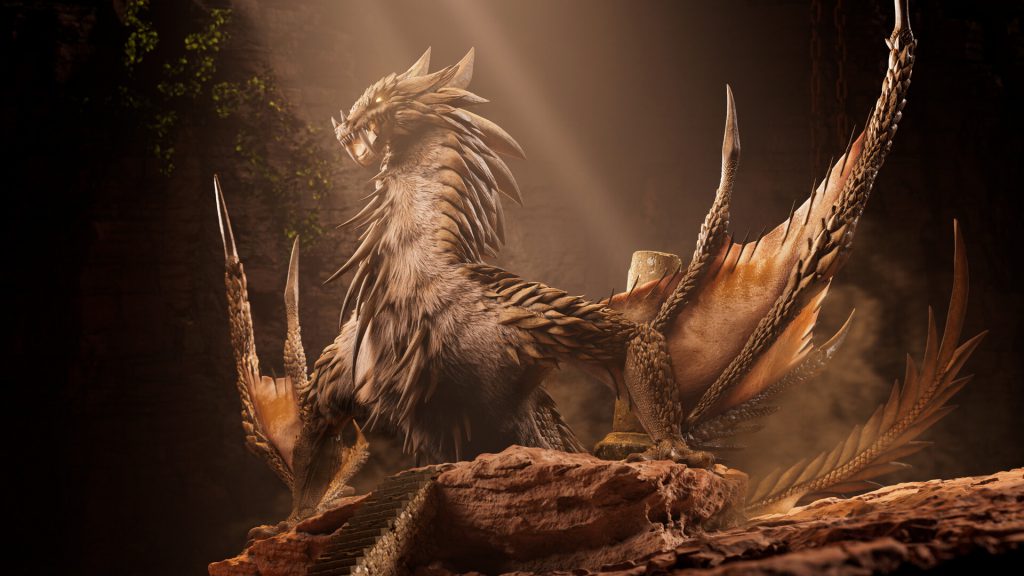
Xeno Creatives Artist Spotlight: Rufat Melikov

The rise of AI-generating art has earned the ire of the digital art community. To some it is seen as a competitor, one that would perish the very essence of creativity and the beauty of the human mind. But to 28-year old Rufat Melikov, a self-taught and experienced digital artist, the new AI development is a more of a necessity rather than a nuisance.
Let’s get to know Mr. Rufat mMlikov in this short feature to see how he built himself as a digital artist and why he sees the issue as something that should not be treated as one.
Xeno Creatives (XC): We understand that with just about any craft, passion takes precedence. In your case, how did it start becoming a passion? Would we be right in assuming that you consider it a “calling” as a lot of your contemporaries do?

Rufat Melikov (RM): I started studying 3D when I was 18 years old. Now I am 28. I love the world as creation itself and have realized that 3D is the way for me to understand the world in a deeper way. Creating 3D art helps me learn and investigate things around me.
XC: What was it that got you interested in 3D art? Did you ever plan on taking it seriously initially?
RM: I took it seriously from the very start. The digital craft is difficult to learn it if you take it lightly. There is so much technical knowledge that have to be absorbed. I believe that you will not get to the top if you will not take it to heart.

XC: Now that you’re an active part of the industry, would you say you have figured your place in it?
RM: I love creating 3D characters. Delving deep into a pipeline, especially in one wherein you are tasked to create a character, allows you to learn each phase of production in-depth. I played games during my childhood if the character design espoused my interest.
XC: What does your pipeline usually look like in a typical production? What are the common challenges a 3D artist like you encounters in a project?
RM: Creating individual characters each has its own challenges. The pipeline changes depending on the way the character will be used. For example, creating CGI comes with its own pain points. If you’re working on a game, it will open up a new set of such. I believe the main thing to do is to analyze your task before commencing work. If artists know how to effectively analyze and plan their work, everything will go smoothly.

XC: What would you consider your biggest or most exciting project to date? Could you tell us a little bit about it?
RM: One of the interesting projects I worked on was the one with Shares Creators studio. We have created characters for a game called, “Call of Dragons.” Currently it is one of most popular games. Each character has a unique design.
XC: Your works over at ArtStation are true visual treats. They are highly diverse and yet indicative of a distinctive style. Which among them are you most proud of and why?
RM: The one that I am working on now is what I think I am most proud of. However, I must say that I like them all as my works, but I also believe that I could always do better. I will post the pieces that I have worked on recently. I believe this work that elates me the most.

XC: If you were to market yourself, what would you highlight as your edge?
RM: I can do quality work in speedy timeframes. I believe it is my advantage over other artists. Because of my long industry experience, I found ways to produce quality work in half the time.
XC: How do you think digital art-generating AI technology will impact digital artists and the 3D art industry in the long run? Is it a helpful tool or an insidious threat to the future of your craft?
RM: I believe it will give quality to non-experienced artists. Also I think the quality of work that professional artists will improve further with its use. That’s why I believe that AI will be a helpful tool for artists. If AI will be able to solve technical stuff, artists will have more time to show their ideas in the best quality that they can. I believe we’re entering the era of creators.

XC: What is your message for your fellow digital artists and those aspiring to be a part of the industry in these challenging times?
RM: Never stop! Nowadays the developments in the industry happen fast. Our main task, as artists, is to continue growing. Personally, I try to find inner peace. I believe this is of great importance. Once you find it, you are assured that all will go smoothly.
Want to see more of Rufat Melikov’s amazing works? Visit his ArtStation or watch this video:

